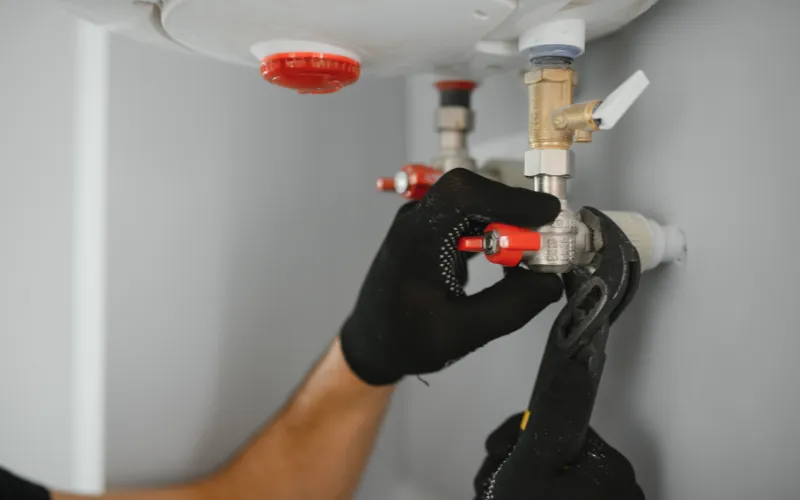
Gas Line Repair: What Every Homeowner Needs to Know
Gas. You don’t see it. You don’t think about it. Until one day—you do. A strange smell. A hiss near the wall. A stove that refuses to light. Suddenly, you’re Googling “emergency gas line repair” at 2 AM.
And here’s the thing. This isn’t like patching a hose or tightening a faucet. Gas isn’t forgiving. Mistakes can cost you your home—or worse.
That’s why this guide exists. To give you everything. Risks. Warning signs. The process of fixing. Why a licensed Gas piping contractor is the only safe bet. And, yes, what you’ll probably pay. Competitor articles? They skim. We’ll go deeper. Practical advice you can use today.
Key Takeaways
Gas line repair is serious. Ignoring it risks fire, health, or worse.
Gas leak detection goes beyond smell—pros use advanced equipment.
Licensed contractors = safety, compliance, peace of mind.
Prevention is cheaper than emergencies.
Bottom line? Don’t wait.
Why Gas Line Repair Can’t Wait
Gas leaks don’t wait for your schedule. They don’t care that it’s the weekend or that you’re saving for vacation. One small leak? It builds. Silent. Deadly.
The Risks People Overlook
Health: Headaches. Dizziness. Nausea. Ever heard of carbon monoxide poisoning? It creeps in quiet.
Fire/Explosion: A spark. A lighter. Even static discharge. That’s all it takes.
Property Loss: A damaged home, or worse—a total loss.
Why DIY Isn’t Safe
Let’s cut it straight. YouTube can teach you a lot. Fixing a leaky sink? Sure. But gas lines? Absolutely not. Wrong wrench turn, loose fitting… boom. Not worth it.
That’s why you hire a pro. A certified Gas piping contractor knows codes, materials, safety checks. They bring not just tools, but expertise. And trust me—that’s what keeps your family safe.

Signs You Need Gas Line Repair Right Now
Gas leaks aren’t always obvious. You might notice, you might not. But there are signs. And ignoring them? Dangerous.
The Obvious Clues
Smell: Rotten eggs. That’s added by the utility company for a reason.
Sound: Hissing near the walls, floor, or appliances.
Plants Dying: Gas escaping underground kills grass, shrubs, even trees.
The Subtle Signs
Headaches or Fatigue: Feels like the flu but isn’t.
Spikes in Bills: You’re not using more gas, yet costs rise.
Appliance Issues: Stove flames weaker. Water heater slow.
The “Do Something Now” Moment
If you suspect a leak: stop. Don’t light anything. Don’t flip switches. Get out. Call the utility company. Then a contractor. Gas leak detection is urgent, not optional.
The Process of Gas Line Repair
Wondering how it works? Let’s break it down.
Step 1: Inspection
A contractor inspects your system. They look for corrosion, cracks, pressure issues. They’ll likely use specialized meters—stuff the average homeowner has never seen.
Step 2: Gas Leak Detection
No, it’s not just sniffing the air. Pros use ultrasonic detectors, thermal cameras, and pressure tests. They find the exact source.
Step 3: Shut Down
Before repair, the line is isolated. No gas flows. No risk of ignition.
Step 4: Repair or Replace
Small issues? They repair sections.
Larger problems? Entire lines may need replacement. Copper, steel, polyethylene—depends on code and situation.
Step 5: Testing & Safety
Once fixed, lines are tested under pressure. Verified safe. Only then is gas restored.
Cost of Gas Line Repair
Nobody likes this part. But let’s be real—you’re thinking it.
Factors That Affect Price
Extent of Damage: Small leak vs. major replacement.
Location: Indoor vs. underground.
Materials: Type of pipe needed.
Labor: Rates vary by region, contractor experience.
Ballpark Estimates
Minor repair: $150–$400.
Larger repair: $500–$1,000.
Full replacement: $2,000+.
Sure, it’s money. But what’s the cost of doing nothing? Priceless—because it could cost your home.
Preventing Future Gas Line Problems
Prevention beats emergencies. Always.
Regular Inspections
Schedule yearly checks. A Gas piping contractor will spot corrosion, loose fittings, or pressure changes before disaster.
Appliance Maintenance
Stoves. Water heaters. Dryers. Keep them serviced. Small issues can stress the gas system.
Know the Warning Signs
Educate your family. Teach them the smell. Teach them the response: leave, call, don’t touch switches.

Choosing the Right Gas Piping Contractor
Not all contractors are equal. And for gas work, experience matters.
What to Look For
License & Insurance: Non-negotiable.
Experience: Ask how many gas jobs they’ve done.
References: Reviews, word of mouth, case studies.
Emergency Response: Do they answer calls at midnight?
Red Flags
No paperwork.
Vague estimates.
Pushy sales tactics.
Trust your gut. If they feel sketchy, walk.
Case Study: A Real-World Repair
A homeowner in Dallas smelled gas. Thought it was the garbage disposal. Days later, bills spiked. Headaches started. Finally called a pro.
Turns out? Corroded underground line. The contractor used gas leak detection equipment, pinpointed the crack, and replaced the section same day. Total cost: $700. Expensive? Yes. But safe. And far cheaper than a hospital bill—or worse.
FAQs About Gas Line Repair
1. How do I know if I need gas line repair?
Smells, hissing, dead plants, or sudden health issues. Don’t ignore.
2. Can I repair a gas line myself?
No. Too risky. Always call a licensed contractor.
3. How often should gas lines be inspected?
At least once a year. More if your home is older.
4. How long does repair take?
Depends. Minor fixes in hours. Larger replacements may take a day or two.
5. What if I can’t afford repair right now?
Talk to your contractor. Some offer financing. But don’t delay—it’s safety.
Conclusion
Gas. Invisible, powerful, unforgiving. Gas line repair isn’t something to push aside. The signs, the risks, the process—we’ve covered it all. From knowing when to call, to choosing the right pro, to understanding cost.
At the end of the day, it’s simple. Don’t gamble with safety. Get the right people on the job.
Call to Action
Smelled gas? Suspect a leak? Don’t wait another minute. Call a licensed Gas piping contractor for immediate gas leak detection and repair. Your safety—and your family’s—comes first. Always.